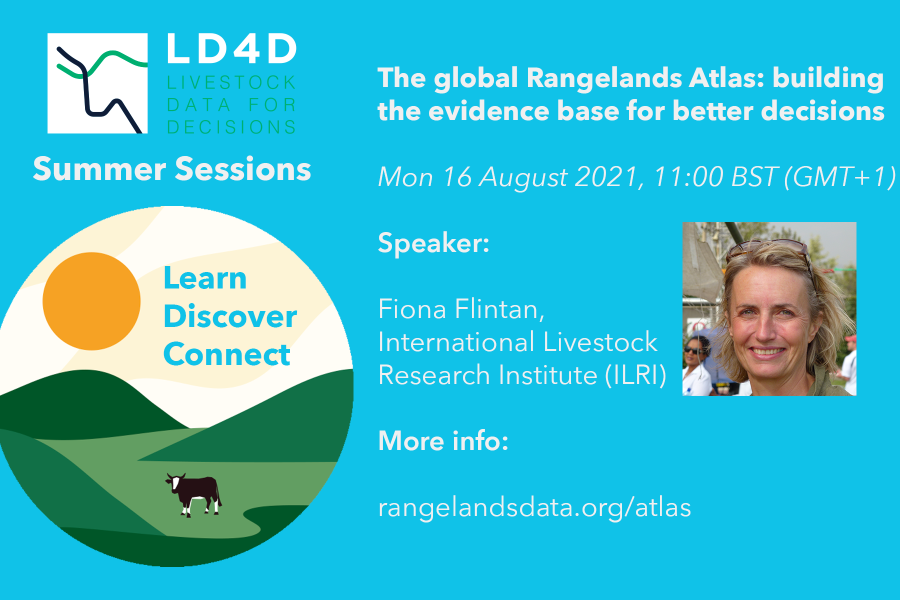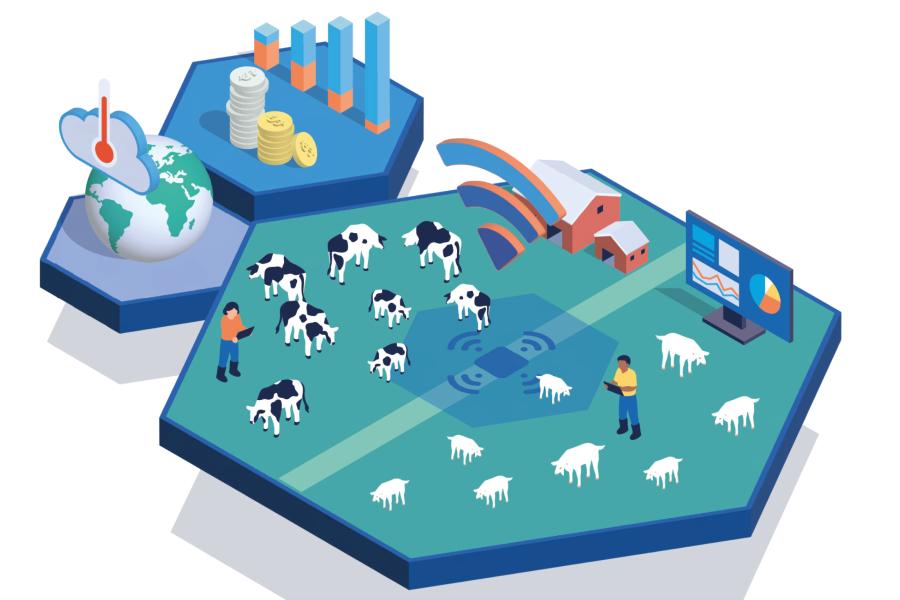Healthy Animals: A Win-Win Solution for Climate and Food Security.

A new study highlights that common, low-grade infections and production diseases contribute to a big share of greenhouse emissions from livestock. Addressing these health issues could be an important avenue for reducing emissions from the livestock sector.
Photo: C. Hanotte (ILRI)
New study highlights how improving animal health can help mitigate climate change
Across the world, farmers and governments are under growing pressure to address greenhouse gas emissions (GHGs) from livestock. This has led some people to call for reduced livestock numbers, an approach that would have major repercussions for food security in low-and middle-income countries. But other options are now coming into view. Researchers have highlighted an overlooked avenue that could significantly reduce greenhouse gas emissions from livestock farming without compromising food production. A new study published in the Proceedings of the Royal Society B: Biological Sciences, reveals that improving animal health could become an important strategy in mitigating the climate footprint of livestock while supporting farmers and food security.
The study highlights that common, low-grade infections and production diseases, such as mastitis and lameness likely account for a significant portion of increased emissions. However, these issues are often overlooked in favour of more high-profile disease outbreaks. Current greenhouse gas accounting methods also fail to adequately represent the effects of these health issues, leading to a missed opportunity in emission reduction efforts.
Led by Professor Ilias Kyriazakis from Queen's University Belfast's Institute for Global Food Security, an international team of researchers examined the link between animal diseases and greenhouse gas emissions. Their findings suggest that animals with compromised health contribute more to emissions, and by extension, improving animal health could help combat climate change.
"Improving animal health can deliver an immediate reduction in greenhouse gas emissions from livestock and at the same time improve production efficiency, but is not prioritised because the benefits are not well quantified," explains Professor Kyriazakis . The study provides six recommendations for animal health research to account for these benefits, providing the impetus and action to reduce GHG emissions from livestock systems.
One of the study's co-authors, Dr. Frances Ryan from SEBI-Livestock at the University of Edinburgh, emphasizes the broader implications of this approach:
“Livestock are crucial to livelihoods around the world and play an especially important role for food security, and the provision of nutrient dense food in the global South. Furthermore, livestock in low- and middle-income countries support family savings, cultural roles, as well as, being useful for draught, and fertiliser provision.
“Livestock are more mobile than crops and so are especially important for climate adaptation. Therefore, it is vital that in striving for reductions in greenhouse gas emissions we do not undermine these benefits or endanger food security. Reducing emissions by improving animal health allows us to address environmental issues while protecting people who rely on livestock. We should seize this opportunity to get closer to a sustainable planetary future.’’
The proposed recommendations highlight critical gaps in knowledge and practice, and provide an indication of how improved animal health can support emissions reductions. This research could have far-reaching implications for various initiatives working at the intersection of livestock and climate change, and may even open up new avenues for climate finance in the livestock sector.
Learn more
Journal article
- Kyriazakis I et al. 2024 Improve animal health to reduce livestock emissions: quantifying an open goal. Proc. R. Soc. B 291: 20240675. https://doi.org/10.1098/rspb.2024.0675
Policy brief


